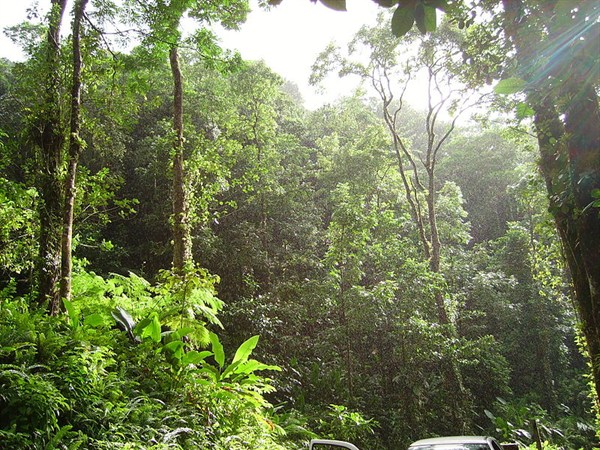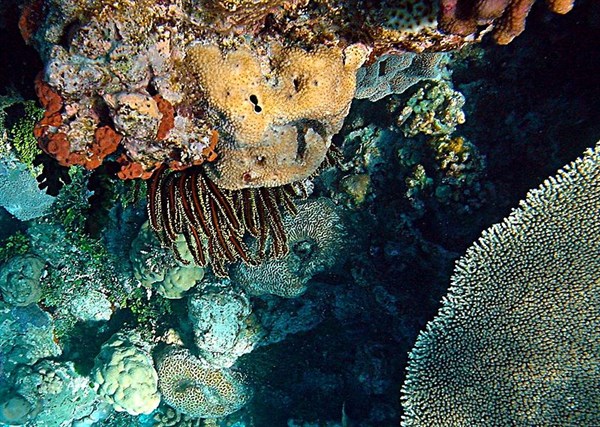Robin Webster
01.04.2014 | 12:00pmThe UN’s much anticipated landmark report into the future impacts of climate change was finally launched yesterday – covering everything from fisheries to flooding. We’ve dug out five hidden stories you may have missed.
Hundreds of scientists have collated all the available research investigating climate change’s effect on natural systems and human societies around the world and put them together in a summary report. Food prices will rise, security risks increase and the weather will get more extreme, the report predicts. But not all the stories have made it onto the front pages.
1. Don’t be a tree
A large fraction of both land-based and freshwater species face extinction risks as a result of temperature rise this century, according to yesterday’s report – especially as climate change interacts with other stresses like habitat destruction or over-exploitation, pollution and invasive species.
The survival of many plant and animal species is already under threat as a result of human activity.
Only a few species have gone extinct so far as a result of the changing climate, the IPCC says – but as temperatures rise, this could soon change.
Some species will be able to adapt to the changing climate. But those that can’t – or can’t do so fast enough – will become less abundant, or go entirely extinct over all or part of their ranges.

Trees are more vulnerable to climate change than other species
Whether or not individual species will be able to survive depends largely on their ability to migrate into different areas. This puts plants at something of a disadvantage. If the world fails to limit temperature rise to 2C above pre-industrial levels by 2100, tree and herb species are “projected to be unable to track climate in the absence of human intervention” in the latter part of this century, the report suggests.
Human intervention and ecosystem management can also reduce the risks – but not eliminate them entirely.
2. Fewer fish in warmer oceans
The changing temperatures of the oceans are also expected to have an impact on marine species. Fish and invertebrates are likely to migrate in search of cooler water – increasing species richness and the abundance of warm-water species in temperate regions. But in the tropics, there’s likely to be a decrease.
This will result in a “global redistribution” of fisheries – meaning that in some parts of tropical regions, people’s livelihoods will become more precarious. Where threats like over-fishing already exist, climate change could make pre-existing problems worse.
So while fish stocks around the UK could increase, fishing communities in the tropics may find their livelihoods threatened by climate change.

Tropical fish populations will be affected by climate change
3. Poverty pockets in rich countries
Climate change is often viewed as a problem that bites harder in poorer countries than rich ones. The new report backs this up. A changing climate is likely to hamper economic growth and attempts to tackle poverty. In poorer countries, climate change will erode food security and trigger new poverty traps – particularly in urban areas and emerging ‘hotspots’ of hunger, the report says.
But the rich world is not immune. Climate change will also create new ‘poverty pockets’ in countries where inequality is increasing – in both developed and developing countries. Poorer households that buy food rather than grow it are likely to be particularly affected by food price increases, the report says.
4. Amazon and Arctic ecosystems at risk of tipping
There have been a lot of scientific arguments about ‘tipping points’ – critical thresholds beyond which ecosystems under pressure experience abrupt and drastic changes from which it’s impossible to return.
Scientists are confident that tipping points exist in theory, but predicting when they might occur is a lot more difficult. That doesn’t mean they’re not going to happen, however. In fact, early warning signs already exist that both warm-water coral reefs and the Arctic ecosystems could be experiencing irreversible changes, the report says.

Early warning signs already exist that warm-water coral reefs and the Arctic ecosystems could already be experiencing irreversible changes.
The more greenhouse gas emissions are released into the atmosphere over the coming decades, the greater the chance different natural systems could encounter tipping points during this century.
There’s a high risk that valuable ecosystems including the Arctic tundra or Amazon forest could experience “abrupt and irreversible regional-scale change” under a business-as-usual scenario, according to the IPCC.
These changes could trigger further consequences. If vast swathes of forest die off, that could mean even more carbon is released into the atmosphere, making the impacts of climate change worse.
5. We can still avoid a 2C temperature rise. Theoretically.
In order to avoid “dangerous” human interference in the climate system, the international community, under the auspices of the UN, has agreed we need to limit temperature rise to two degrees Celsius above pre-industrial levels.
It’s looking increasingly unlikely that we’re going to hit that target, however. Research suggests radical changes would be needed to economies and societies around the world in order to make it happen.
In one of the IPCC scenarios temperature rise is limited to less than 2 degrees by the end of the century. The scenario involves a large expansion of biofuels.
Yesterday’s report emphasises that efforts to reduce greenhouse gas emissions now may not pay dividends in the near term. That’s because we’re already locked into a certain amount of warming over the next couple of decades as a result of past emissions. But in the second half of this century, global temperature rise differs markedly between the different emissions scenarios. In other words, the benefits of reducing greenhouse gas emissions now may not be felt for many years – but when they are felt, it’s going to matter a lot.

